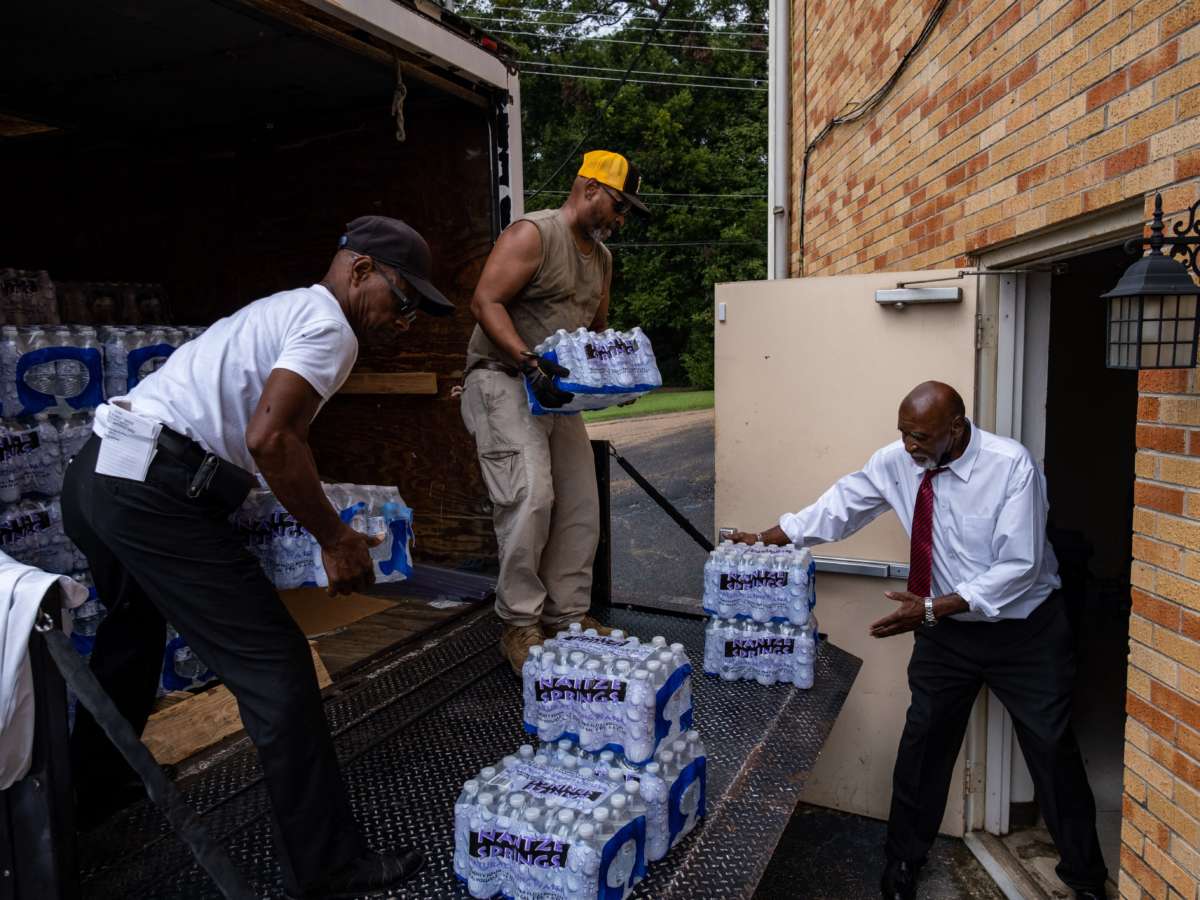

In mid-September, Mississippi Governor Tate Reeves declared that the state was ending its weeks-long boil ordeal. Jackson, it sounded like a declaration of victory: “We have restored clean water to the city of Jackson.” The ensuing headlines sent the same message of relief after weeks of the intense crisis Tens of thousands of people in the capital city were left without water access.
But Governor Reeves’ words gave false assurances about the situation on the ground —This could indicate a disturbing desire to push a private acquisition out of the national spotlight.
In contrast to the governor, residents of Jackson — who have been heroically leading recovery and justice in their communities — were telling a different story: Lead contamination was still a danger to health. Many homes had water that was not safe to drink. The infrastructure remained fragile.
Year after yearIntensifying storms have caused water outages and main breaks. This year it was the near-historic flooding that knocked out the city’s main treatment facility; last year, it was a devastating winter storm that left residents without water for weeks. What Jackson needs — like many cities and towns across the country — is money to fix the problems. The government has spent decades reducing infrastructure funding. Since 1977, federal funding has been available for municipal water systems. plummeted an astonishing 77 percent.
This is especially tragic in areas like Jackson, where decades of racist policies and population and wealth loss — much of it due to white flight following school integration in the 1970s — have hollowed out what little aid could be available. Governor Reeves rejected a bill to help Jackson improve its bond rating to fund new projects, in 2020. This was after the failure of a private meter replacement. This legislation was finally passed. without his signatureLast year, but legislators killed another proposalto help the city raise its own funds for water repairs.
The city’s water system needs as much as $1 billion in improvements; last year, the state provided just $3 million — a mere 6 percent of what the mayor requested and less than 1 percentThese are some of the projects that were funded by the state.
What Governor Reese has prioritized, meanwhile, is turning over the city’s water system to a for-profit corporation. “Privatization is on the table,” he announced early this month, making a more pointed threat days later: “To the residents of Jackson, I would simply say, I don’t think it’s very likely that the city is going to operate the water system in the City of Jackson anytime soon, if ever.”
Privatization isn’t a solution. It is an invitation to new problems. It would exacerbate the city’s water affordability crisis, driving up the cost of those necessary improvements to cover corporate taxes and profits. Private companies charge 59 per cent more for water service than local governments. Private ownership is the biggest factor driving higher rates — playing a bigger role than drought or aging infrastructure.
Corporate water operators have been making a sly move to point fingers in an inexplicably cruel act. Jackson is the only place where water privatization can work. At least one CEO admitted it. no room for profitThe corporate water lobby continues to profit from the crisis to promote privatization of water and justify their higher prices.
It is not surprising, then, that they would claim to be the solution. This kind of shameless public relations could be seen as self-preservation. Local communities have been fighting water privatization deals and are winning. A corporate plan to seize a Pennsylvania sewer network was stopped by the strong grassroots opposition of Neighbors Oposing Privatization Efforts. This would have been the largest ever sewer sale in the country’s history, but it turned out to be a huge embarrassment for industry.
All levels of government need to continue the emergency mobilization in order to ensure clean water in Jackson. Congress provided $20 million last month for Jackson, but this is a drop in the bucket of what’s needed. To fund a full recovery, the federal government must act quickly and provide additional direct grants to Jackson. And it’s clear that the federal government must stop waiting for catastrophic system failures before making the investments to ensure that every community has safe water. Although the Bipartisan Infrastructure Law 2021 was a downpayment for this vision, it only met about 7 percent of what communities require to provide safe water. The Water Affordability, Transparency, Equity and Reliability (WATER) ActThe bold legislation that would deliver water justice to communities across the country is HB 35 billion, which would create an annual trust fund of $35 billion.
